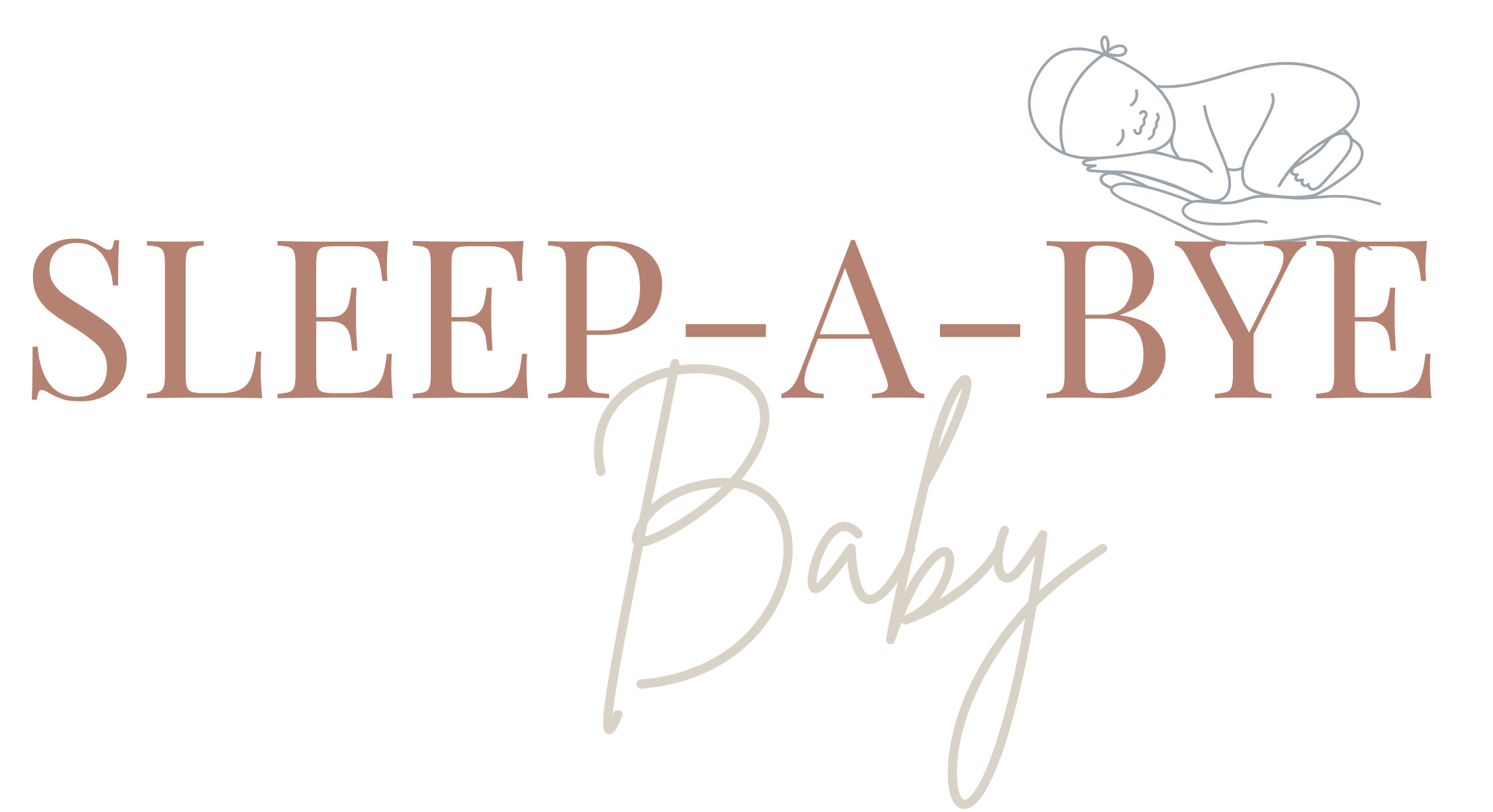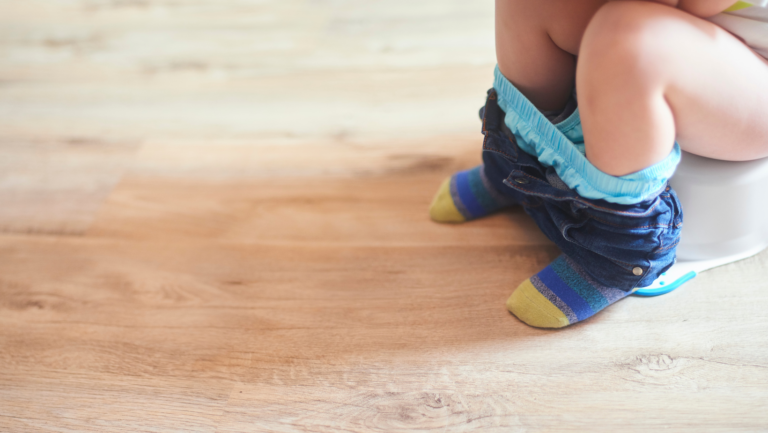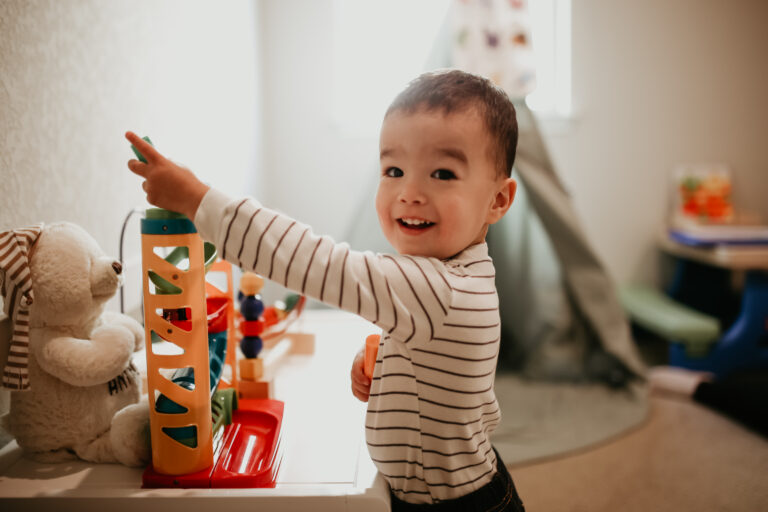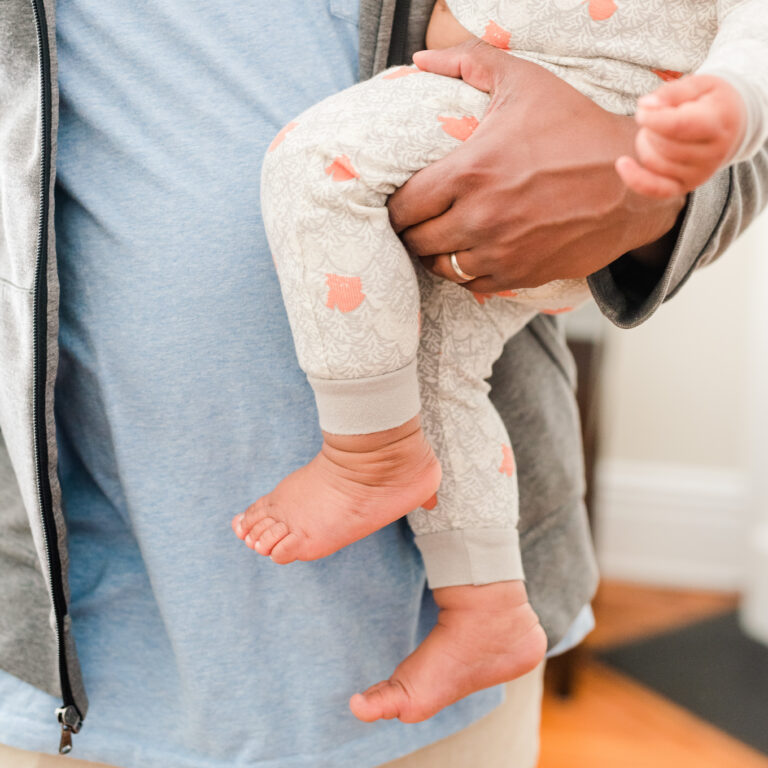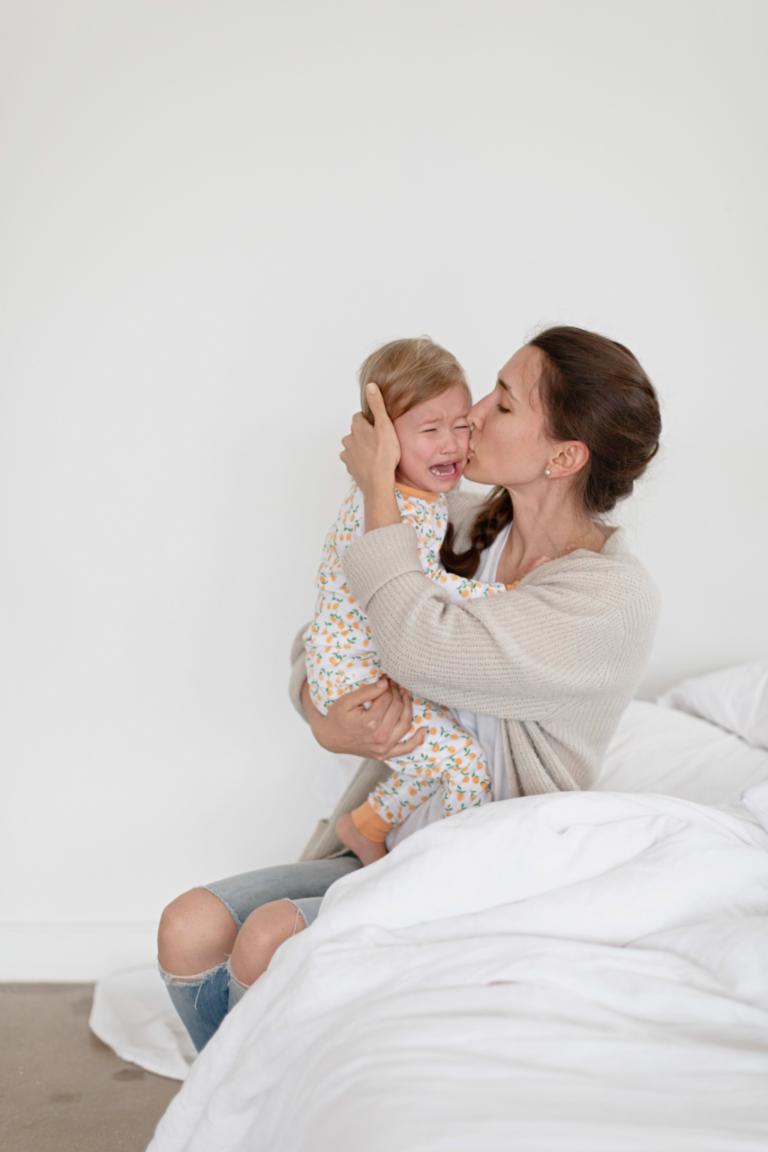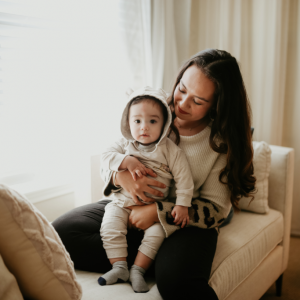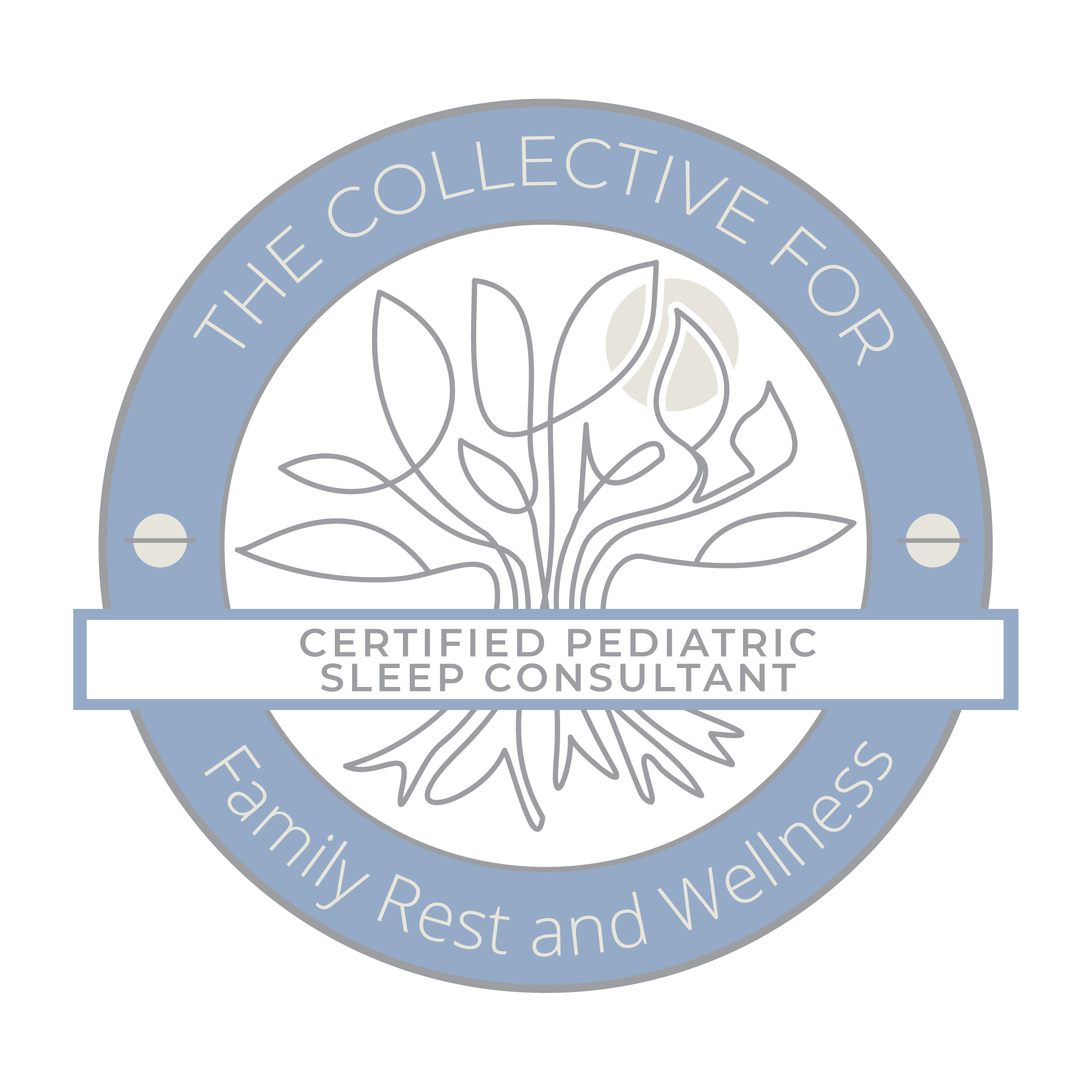When I was expecting my first son back in November of 2019, I was 100% ready to become a mother. I felt prepared for anything that would come my family’s way. I remember thinking, “how hard could having a new baby actually be?”
It also helped that I had been working in the NICU as a nurse for 2 years already and I thought I knew everything I needed to know about babies: feedings, health, SIDS prevention, medications, how to do a proper bath, etc. The list goes on!
Then, my first son was born – and the realities of parenthood set in. Let’s just say me and my husband were very humbled by the first 3 months of our son’s life. We were also very exhausted and really at a loss when it came to soothing and feeding our son and YES…Sleeping to.
No amount of NICU or life experience prepared me for motherhood…especially when it came to the lack of sleep we were all getting.
I remember thinking…is it just my baby that does not like to sleep? Is he this unicorn baby that has decided that sleep was just NOT his thing?! If that was the case…what a BUMMER!
Soon enough, all my friends knew about my woes…and one of them decided to reach out to me and suggested that we sleep train our son. Now, at the time, I had heard a lot about the dreaded topic of sleep training from a few acquaintances and remember specifically deciding that I was NOT going to have my son cry it out in the middle of the night when he needed us most.
Because that is what sleep training is…right?
WRONG.
Let me start with what sleep training actually IS.
Sleep training is a blanketed word for a variety of interventions that are used to encourage children to become independent sleepers and to promote both their quantity and quality of sleep.
Sleep training – when used correctly and holistically – is:
- An INTERVENTION and a CHOICE
- It is backed by controlled AND peer-reviewed evidence-based studies, both dated and recent
- It is considered a Positive stress event – which refers to short-lived, mild-to-moderate stress which is healthy for assisting in coping with overall stress. Because not all stress is bad! We need the stress hormone cortisol to survive!
- It is both personal to each family and is malleable to parent’s preferences and child’s temperament
- It promotes scaffolding-which refers to parents supporting their child in learning skills that they have not yet accomplished. Much like holding your child’s hand while they are learning to walk…or demonstrating proper hygiene to them while they are learning how to wash their hands or brush their teeth!
You are probably thinking: “Okay Amber, so why have I been hearing all of these negative things about sleep training?!”
It is because of three things: Bias, stigma, and non-evidenced based information
Now let me tell you what sleep training is NOT
- It is not withdrawing support from your child when trying to put themselves to sleep
- It is not withholding feedings, diaper changes, or other necessities from your child at night
- It is not letting them cry it out to the point where they “shut down” so they learn not to rely on their parents anymore (which has no evidence-based research by the way)
- It does not discourage cuddles, contact naps, or feeding at night! (Unless parents choose this! But for mothers that are still wanting to keep those feeds at night or have a cuddle nap here or there, then sleep training can combine parents’ preferences while also establishing independent sleeping in their baby!)
- Lastly: it is NOT cry-it-out (CIO). Even though this is ONE of many interventions that parents can choose, sleep training is not defined by CIO.
Myths of Sleep Training
- MYTH: Sleep training promotes “shutdown syndrome” – a phrase coined by Dr. Sears, the founder of Attachment parenting, which refers to a baby “depression” where a child shuts down completely to preserve themselves when not being responded to
- FACT: This “syndrome” is a non-scientific term and has NOT been proven to be true by any scientific study
- MYTH: Sleep training increases the risks of SIDS. Also stated by Dr. Sears, who had a 4-month old patient die right after being sleep-trained.
- FACT: 4 months of age is the PEAK risk of SIDS and this theory was based on ONE patient of his.
- MYTH: Sleep training reduces night wakings
- FACT: Night wakings biologically will happen, for both adults and children. Sleep training gives children the tools to fall back to sleep independently when these night wakings occur
How sleep training our children changed our lives for the better
Remember when I mentioned before that I would never sleep train our child?
Well, we ended up taking the plunge a few weeks after my friend suggested it and found an amazing consultant who worked with us on a gradual approach to sleep training our son since the cry–it–out method was not my cup of tea.
And within a week, our son was not only sleeping through the night but had learned how to soothe himself to sleep!
Mind you, this all happened without me feeling like I was not supporting him through it all.
Were there times I just wanted to pick him up and feed him or rock him to sleep? Of course! But I learned that I needed to give him the chance to do it himself and also give myself a fair chance to let him do it!
I also started to educate myself on sleep training and realized that there was a lot of misinformation out there. I realized that there were too many opinions, and not enough factual evidence. No wonder I already had a stigma about sleep training before even considering it!
I am glad, though, that my and my husband took the plunge, because, 15 months later we had our second son, and decided to sleep train him right off the bat. By 2 months old he was sleeping through the night as well. At this point, I was incredibly inspired by the results of the entire process that I decided to get my sleep consultant certification.
Now, my main goal in becoming a pediatric sleep consultant is to break the stigma surrounding sleep training so I can help support families that are in desperate need of sleep both through holistic methods backed by evidence-based research.
In the end mama, it is okay if you want and need rest.
When sleep training is carried out holistically, it can have incredible results on the entire family unit – without having to sacrifice your love of all things cuddles and bonding with your baby. If you are interested in catching some more Zzzs, book a consultation with me here to go over sleep services!
